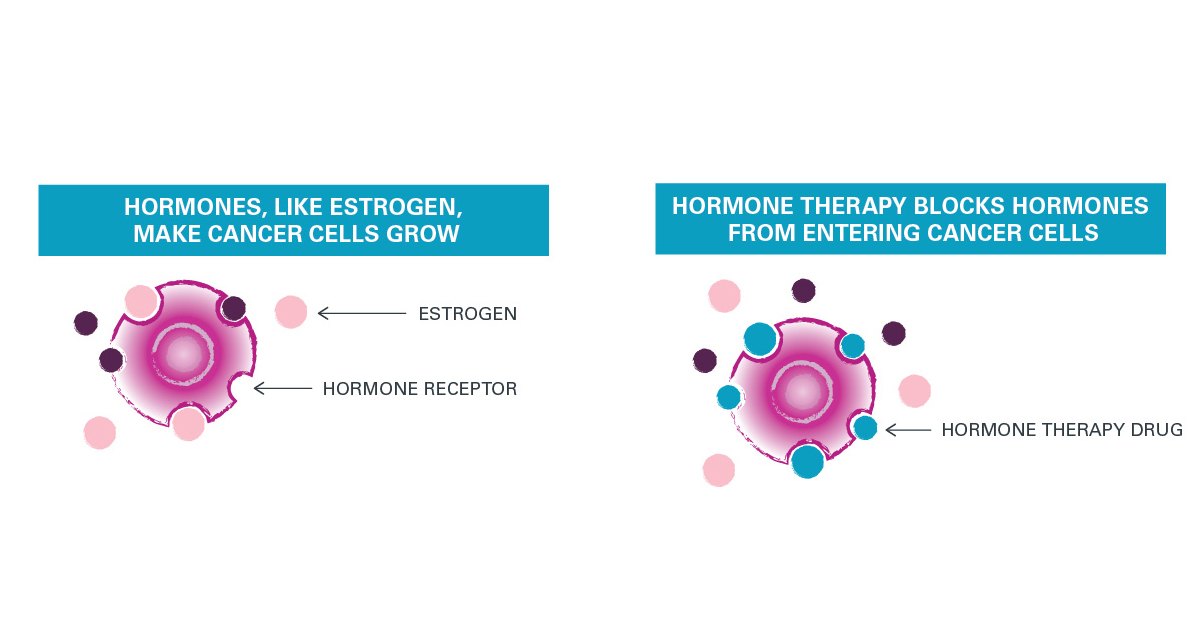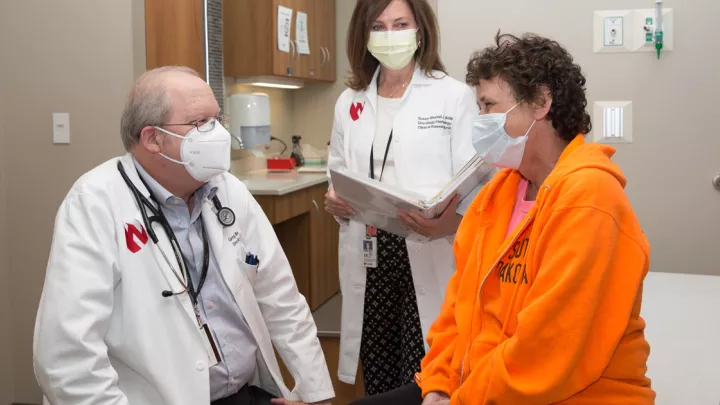Breast cancer study tests pairing hormone therapy with immunotherapy

Estrogen is vital for women's health. It makes breasts and bones grow, regulates your period and maintains a normal body temperature.
But it can also make cancer cells grow. About 80% of breast cancers are hormone receptor-positive. That means hormones (like estrogen) make the tumors grow.
Cancer researchers found a way to fight this. Some drugs don't let hormones get into cancer cells. Other drugs lower hormone levels. These types of drugs are called hormone blockers.
For many breast cancers, hormone blockers are the standard treatment. But combining it with immunotherapy hasn't been studied – until now.
Medical oncologist Pavan Kumar Tandra, MBBS, and the team of doctors through the Big Ten Cancer Research Consortium, are evaluating the safety of two drugs together in a clinical trial.

Fulvestrant blocks the estrogen receptor site on the cancer cells. Also known as Faslodex®, the drug is FDA-approved for hormone receptor-positive metastatic breast cancer.
The other drug, pembrolizumab, works on your immune system. "Immunotherapy works on your immune cells," says Dr. Tandra. "The human body has a natural ability to kill cancer cells. Sometimes it needs a little boost." By blocking a specific pathway, the drug allows your immune system to recognize and kill cancer cells effectively.
Pembrolizumab, also known as Keytruda®, is FDA-approved for treating other cancers such as lung cancer and bladder cancer, but not yet in hormonally driven breast cancer. "We already use this specific drug for other cancer patients, so we know the side effects," says Dr. Tandra.
Combining pembrolizumab and fulvestrant is considered investigational. "Investigational" means the FDA has not approved this combination of drugs for this type of cancer. "This study is nonrandomized, meaning every person will get the drugs," says Dr. Tandra.
The trial is seeking women with breast cancer that is:
- Advanced or metastatic (stage 4)
- HER2-negative
- Hormone-positive, which includes both estrogen-positive (ER+) and progesterone-positive (PR+)
For more information, email clinical study nurse coordinator Shara Graalfs, RN, at shara.graalfs@unmc.edu.
IRB number: 0554-18-FB ClinicalTrials.gov Identifier: NCT03393845







